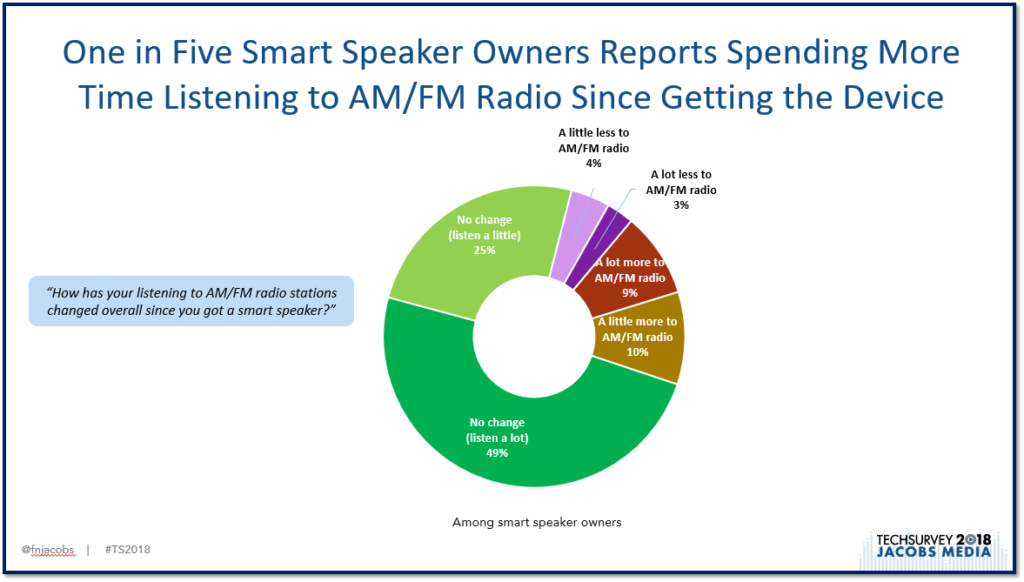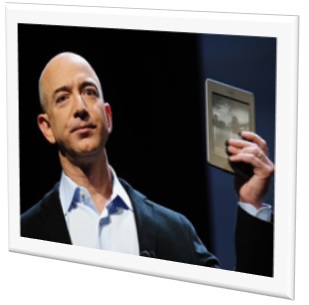
He’s the richest man in the world (and getting richer, seemingly by the day) and we know very little about him.
Amazon’s Jeff Bezos has been something of a mystery man. And while he’s frequently the topic of rumors and gossip, the fact is we know more about Bill Gates, Mark Zuckerberg, and Tim Cook than the enigmatic Bezos.
So when a video interview of Bezos popped up in my Twitter feed over the weekend, I was all over it. It’s under an hour long, and it’s a fascinating look at a guy who enjoys spending time with his wife, his brother (a firefighter), and his entire family. His story about the rise of Amazon is an important one in our overall understanding of disruption, customer service, and the eventual dominance of tech companies in America. The interview was recorded in Berlin on the occasion of Bezos winning the Axel Springer award.
It’s fascinating that while Amazon has gone from 30,000 employees to 560,000 employees in just the last 8 years, the company is often scrutinized for being too big and too powerful, while accused of paying low wages and providing poor working conditions. And he’s regularly in the crosshairs of Donald Trump who has been especially critical of both Amazon in general, and Bezos personally.
How do you measure Amazon’s impact on America, as well as our culture and our society?
Many look at the development of the Kindle as one of Amazon’s most important accomplishments. After all, it’s changed the way millions of us read books, magazines, and newspapers. And of course, buying books online started the fire hydrant known as eCommerce. Listening to Bezos talk about his vision of creating a book store that offered true variety, far surpassing brick and mortar stores, is fascinating.
And online shopping is changing our holiday shopping patterns, as Black Friday and Cyber Monday are being redefined with each passing year. Our new Techsurvey reveals that four in ten North Americans did the bulk of their holiday shopping last season without setting foot in a brick and mortar store.
It wasn’t that many years ago when Amazon’s shareholders were up in arms because Bezos kept plowing cash back into infrastructure and systems. Today, Amazon’s fulfillment is the best in the business thanks in large part to all the reinvestment. And the company’s shares and net worth has gone sky high.
But perhaps the most sweeping Bezos game-changer will end up being voice – and how we’ll soon use it to search, discover, answer our everyday needs, and seamlessly connect us with the information and content we desire in a simple, on-demand format.
For radio, our new Techsurvey shows how Amazon Alexa owners say their broadcast radio consumption has actually increased since they acquired the device.
 With roughly a 75-share of the smart speaker market, Amazon is in a pretty good position to control this space. Given how quickly it has become a force in our lives, Bezos’ vision is impressive.
With roughly a 75-share of the smart speaker market, Amazon is in a pretty good position to control this space. Given how quickly it has become a force in our lives, Bezos’ vision is impressive.
So, when Jeff Bezos sits down for a rare interview – and specifically offers us up some business advice – we should be all ears. There are a lot of great insight in the interview, but there was one quote that jumped out at me. It was when Bezos talked about how companies and brands often worry about the wrong things:
“It’s okay to be afraid, but don’t be afraid of our competitors, because they’re never going to send us any money. Be afraid of our customers. And if we just stay focused on them, instead of obsessing over this big competitor that we just got, we’ll be fine.”
That’s not to say that understanding what other stations in the market – or around the country – are up to is a waste of time. You have to sense of who you’re up against.
But as Bezos points out, there are times when programmers and sales managers get so wound up over what music the competition is  playing or what the other guys are charging, they lose sight of their own product – and their own customers.
playing or what the other guys are charging, they lose sight of their own product – and their own customers.
And that means listeners and advertisers. As he points out, radio companies, clusters, or stations will not profit from competitors, whether they’re other stations in town, streaming pure plays, or satellite radio. Too often, these competitors are distractions, because their strategies cannot be impacted or controlled. Radio only wins when it’s providing the very best products and services to the people who send them money – listeners and advertisers.
Bezos closes out his thought this way:
“Whatever the actionable distraction is, your response to it should be to double down on the customer. Satisfy them. And not just satisfy them – delight them.”
That’s what Techsurvey is all about – focusing on radio’s customers. The study’s entire mission is to help stations and the companies that own them better serve their audiences and their communities.
As the “Augur of Amazon” advises:
Double down on your audience.
We should do this.
- What To Do If Your Radio Station Goes Through A Midlife Crisis - April 25, 2025
- A 2020 Lesson?It Could All Be Gone In A Flash - April 24, 2025
- How AI Can Give Radio Personalities More…PERSONALITY - April 23, 2025




Of course for us radio types, it all starts with truly understanding your audience. What they want, what they like and appreciate, and what their needs are for the future. If we can keep our focus there instead of what flavor ice cream they’re serving across the street, our level of distraction will be minimized. Great piece Fred.
Jason, thanks. In your world of sports radio where there’s two in a market, it’s easy to get caught up in the competitive drama. That’s why I love Bezos’ advice. Thanks for the comment.